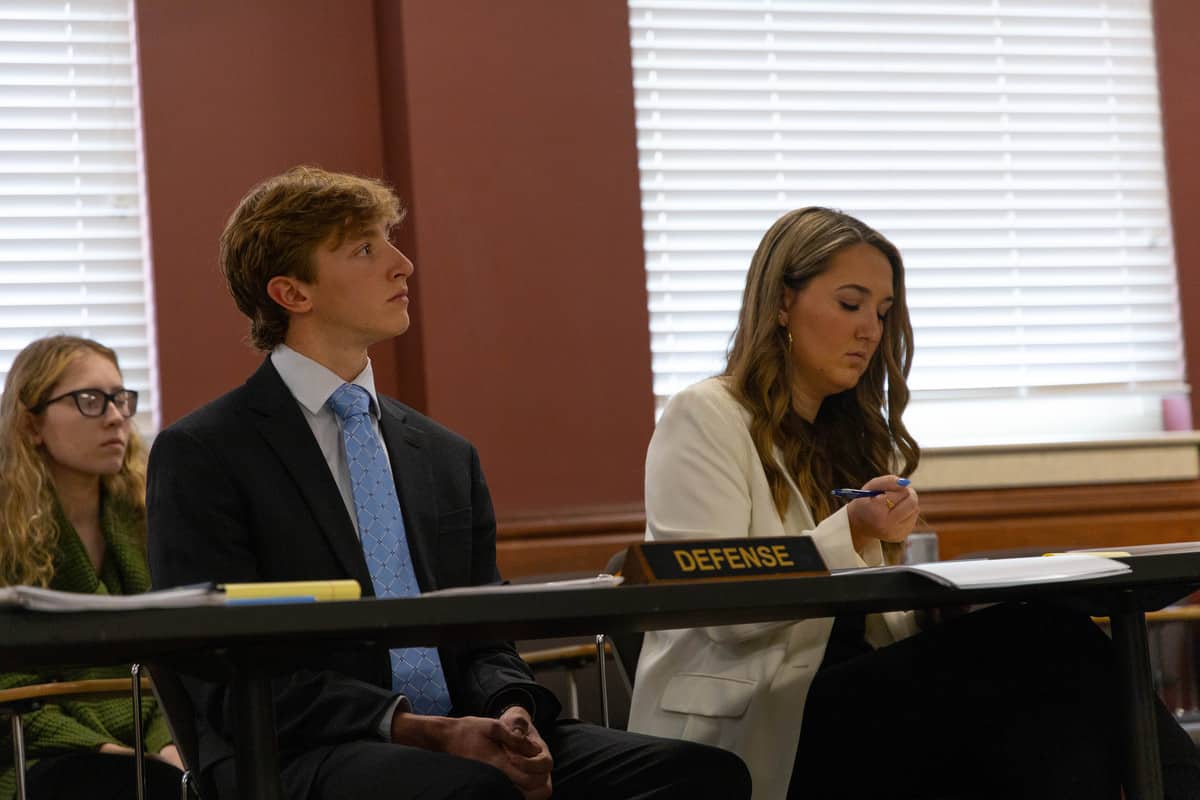By Caroline Smith | Staff Reporter
With all the wild parties, free-flowing alcohol and refreshing freedom that go hand-in-hand with the college experience, many students find that the pressure to develop a mature sexual life is constantly building. Some students fight against the cultural current and stay true to their beliefs that abstinence is the most mentally and physically healthy way to wade through the stress of relationships. However, the decision to wait until marriage has its ups and downs.
Charlotte Petonic, Assistant Director for Health Promotion and Wellness at UA, weighed in on why individuals might choose this particular lifestyle.
“I’d probably say people’s personal belief systems, whether that be religious background or personally they’re just not ready for it, or they associate it [sex] with being in a long-term monogamous relationship,” Petonic said. “There’s a different, large variety of why people would be abstinent.”
Paige Hamilton, a sophomore double majoring in public relations and marketing, offered up reasons why she is remaining abstinent until marriage.
“I believe what the Bible says about how having sex makes you ‘one’ to be true,” Hamilton said. “I think that so many people don’t realize that, and because they don’t believe that, they don’t live that way. But, then they have all of these strings attached to all of these people that they have had [sexual] encounters with, and so, they’re just leaving pieces of their heart as they go. They might not realize it now, but when they get into a healthy relationship and marriage later on in life, those are going to be things that they carry into their marriage.”
Savannah Stanley, junior theater and telecommunication and film double major, is Mormon. She explained why she and others who practice her religion refrain from sex until marriage.
“We believe that procreation is something that is more sacred and that it should be saved for a couple that is married and that has dedicated their lives to one another,” Stanley said.
However, living out this philosophy is easier said than done. Both women explained their tactics for remaining abstinent.
“I currently have a boyfriend who understands and is on board with [abstinence],” Stanley said. “I have seen in other relationships [abstinence] would be an issue because it’s like their whole connection revolves around [sexual] chemistry, so for me, the bigger issue has been finding someone who isn’t just obsessed with that aspect of a relationship.”
Hamilton offered a similar perspective.
“I think it’s better to be more extreme on boundaries than to be more lax on them,” Hamilton said. “Because nothing bad is going to happen if you’re more extreme on boundaries. I think boundaries are a huge thing, and I think that the situations you put yourself in are a huge deal because you might not always have the power to say no in the situation. So, if you just don’t put yourself in the situation at all, then you won’t have to say no.”
Choosing to remain abstinent can feel like a lonely choice for many students. It often seems like refraining from being sexually active is an unpopular decision. However, Petonic has a different take on the commonality of sexual abstinence.
“I think a lot of people presume that their classmates are having more sexual encounters than what they really are, and that’s really based on social media, media in general, and pop culture that everyone assumes that people go to college and have wild escapades,” Petonic said. “In reality, I think that’s blown out of proportion. I think there are probably more people who are abstinent on campus than what you think.”
Frequently, those who choose to remain abstinent are viewed as self-righteous and superior. However, students who strive to wait for sex until marriage wish to change this perspective.
“I’m not [remaining abstinent] to make myself perfect or think that I’m better in any way,” Hamilton said. “I’m just doing it to protect my heart.”
Hamilton explained that she also believes that those who have already had sex still have the opportunity to alter their way of life and choose the path of abstinence.
“I think that God can restore your purity to you for sure,” said Hamilton. “I know because He’s done it in my life, so I know He can do that. I think it’s a lot easier to fall into temptation that you’ve already been a part of, so I think that even more extreme boundaries would be even more important in that situation. But, I do think that it is possible. I think that God can redeem anything He wants to.”
Despite the difficulties and downfalls of practicing abstinence, there are perks, as well. It eliminates the chances of pregnancy and sexually transmitted diseases, among other things.
The statistics surrounding the divorce rates of those who remain abstinent does, in fact, differ from the statistics surrounding those who are sexually active before marriage. According to data collected from the National Survey of Family Growth, women who have had 10 or more sexual partners before marriage had the greatest chance of divorcing their spouse after 5 years of marriage, while women with 1 or less sexual partners had the least chance of divorce.
“They say that half of marriages end in divorce, and the statistic is kind of skewed because it’s referring to people who have lived together before marriage and who have had sex before marriage,” Stanley said. “Whereas, the statistic of people who have waited [to have sex] is different, which I think is interesting.”







